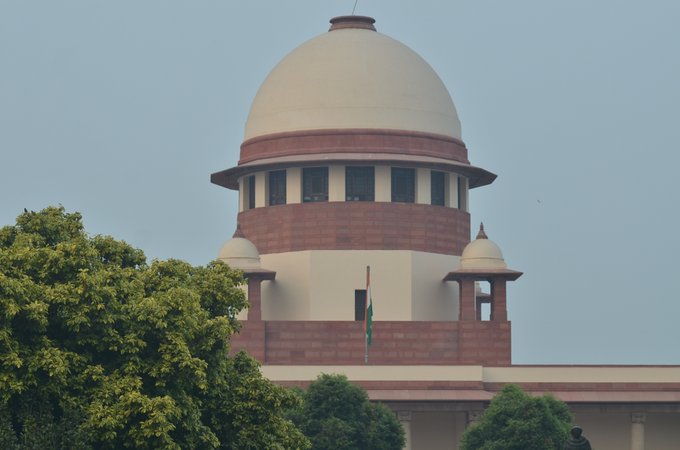Umamageshwari Maruthapan
The Supreme Court in its order dated 12th February 2021 remarked that the provisions of Order. VII Rule 11 of the CPC is not exhaustive and the Court has the inherent power to see that frivolous or vexatious litigations are not allowed to consume the time of the Court.
While hearing a petition that challenged a sale deed, the Bench observed that “Courts must see that the bar in law of the suit is not camouflaged by devious and clever drafting of the plaintiff.”
“While considering an application under Order VII Rule 11 of the CPC the Court is not to look into the strength or weakness of the case of the plaintiff or the defence raised by the defendant,” it added.
In the concerned case, the petitioner/plaintiff had challenged before the Madras High Court a sale deed that was executed by defendant no. 1 in favour of defendants no. 2 and 3 on the ground that there already existed a pre-emption agreement between the plaintiff and the defendant dated 5th November 1998.
The plaintiff stated that the said agreement was executed on the basis of the Power of Attorney executed by the first Defendant in favour of her son.
Defendants no. 2 and 3 filed a petition under Order VII Rule 11 stating that there is no power of attorney that authorizes Zakir Ali, the son, to enter into any sale or pre-emption agreement.
The Madras High Court allowed the application and held that under a Power of attorney, the attorney has no power to execute an agreement as its power is only for conduct of court proceedings.
The present petition before the Apex Court challenges the High Court’s order. Consequently, the Top court dismissed the Special Leave Petition thereby upholding the High Court’s order.
A meaningful reading of the plaint as a whole makes it abundantly clear that the relief claimed in the suit is barred in view of the restricted scope of the Power of Attorney given by the first Defendant to Mr. Zahir Ali,” the Bench stated.
The argument of the learned Counsel for the Petitioner/Plaintiff that the expression ‘to do all lawful acts’ in Clause 6 of the Power of Attorney will include an act of sale of the property is not tenable. The acts mentioned in the Power of Attorney are in respect of Court proceedings and that too with reference to Civil Suit No. 72 of 1979. There is no clause permitting the attorney to sell the property or to enter into any agreement to sell. In the absence of any such clause in the Power of Attorney, the Defendant No. 1 cannot be bound by the acts of her son. Therefore, the purported pre-emption agreement does not give any right to the plaintiff to file the suit. The suit is thus not maintainable,” the Apex Court held.

